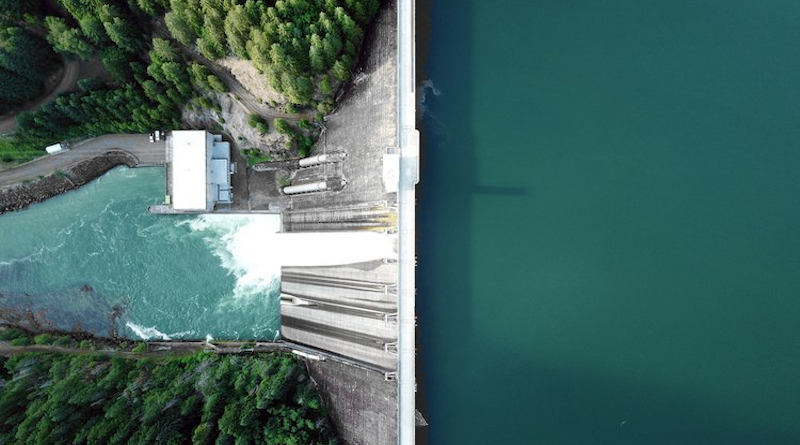Hydropower is a well-established form of renewable energy that has been used for many years. It involves harnessing the energy from moving water, such as rivers or tides, to generate electricity. Hydropower (HP) has played an essential role in Europe over decades, providing a unique combination of safe, low-cost, and clean electricity production. It is still one of the largest renewable energy sources, adding up to about 35% of the electricity generated.
According to the International Energy Agency (IEA), renewable capacity will meet 35% of global power generation by 2025. Predictions show that by 2024-2025 all renewable energy sources will contribute almost 34% to the worldwide electricity production, and Hydropower will provide approximatively 50%.
Historically, hydropower projects have involved constructing large dams to create reservoirs for water storage. These projects, known as conventional hydropower, have contributed significantly to global electricity generation. However, the construction of large dams can have environmental and social impact, including the displacement of local communities and ecological disruptions.
Although Hydropower is largely perceived as a mature technology, both the current and foreseeable challenges require intensive scientific research and technological development efforts. The development of innovative and cross-sectoral solutions for these complex HP challenges requires a completely new research approach based on the expertise of all fields linked with sustainable HP (technology, society, economics and environment) and from a diversity of geographical and stakeholder contexts.
Introducing PEN@Hydropower COST Action
To address these complex challenges, a new network on sustainable hydropower – Pan-European Network for Sustainable Hydropower (PEN@Hydropower) – was launched in September 2022 with the aim of bringing together researchers, engineers, scholars, and other stakeholders from industry, policy and civil society. The objective is to facilitate close collaboration among European research groups through projects supporting sustainable Hydropower.
“Hydropower is an essential part of the future energy mix as a clean and reliable source of energy. Yet there are clear research gaps and lack of funding in the hydropower field, alongside the need to train young professionals and researchers in order to successfully shift towards a carbon-neutral society. We established this network to build the capacity of young professionals, create networking opportunities, and discuss pertinent topics that will help us build the foundations for the future of hydropower in the years to come”, says Dr Eduard DOUJAK, the Action Chair.
This collaborative network gathers experts and scientists from 33 countries and over 180 participants who will be working for the next 4 years on the needs and opportunities for sustainable hydropower production contributing to the Clean Energy Transition (CET). Hence, the PEN@Hydropower COST Action aims at creating a networking ecosystem for the definition of this new research approach.
Multidisciplinary approaches
This is the first COST Action on Hydropower that focuses on Technology and Sustainability to support Europe’s energy transition at the coming future decades.
“The PEN@Hydropower network addresses the Hydropower sector with a strong emphasis on multidisciplinary approaches, gathering together different perspectives from the fields of engineering, social sciences, economics, law, environmental sciences that have not extensively been included in previous projects”, says Steven Frigerio, the Science Communication Coordinator.
This sector has produced, over the last years, numerous important projects. The main ones aim to demonstrate how flexible Hydropower technologies can deliver a low-carbon, secure and resilient power system. The goal is to introduce new Hydropower technologies such as smart controls, enhanced variable- and fixed speed turbine systems. More specifically, to develop the technology permitting highly flexible operation of HP stations, within excellent environmental and social conditions while being economically competitive.
PEN@Hydropower COST Action will evaluate the role of Hydropower and Pumped Hydro Storage (PHS) in the European power sector. The research network aims to establish a scientific framework that will empower Hydropower producers and investors to enhance the performance and competitiveness of existing and new Hydropower and Pumped Hydro Storage plants within the European electricity system.
The Action will develop a holistic scientific strategy that takes into account crucial factors such as digitalisation, climate change adaptation, the balance between production and industrial demands, and the environmental impact.
Additionally, understanding the role of hydropower and pumped hydro storage, will shape the sustainable development of the European energy sector. The research findings will provide valuable insights for policymakers, investors, and industry stakeholders, ultimately contributing to a cleaner and more resilient energy future.
One of the key objectives is to map the current legislative and market framework in the European Union while identifying policy gaps and barriers. With a multidisciplinary approach and a network of experts, PEN@Hydropower COST Action strives to address the complex challenges of the rapidly evolving energy landscape.
As part of the activities of the COST Action, capacity building training schools, along with targeted grants within PEN@Hydropower provide the opportunity for sustainability professional to increase their exposure and knowledge on topics related to hydropower, with the first Training School held in Timisoara, Romania in May 2023.
“The high interest and participation in our activities is testament to the importance of this network and the relevance of hydropower in increasing our renewable energy mix and combatting climate change”, concludes Dr. Doujak.

